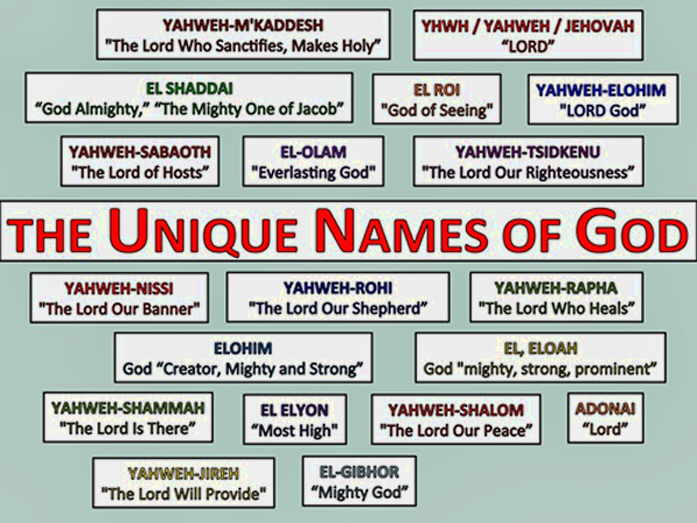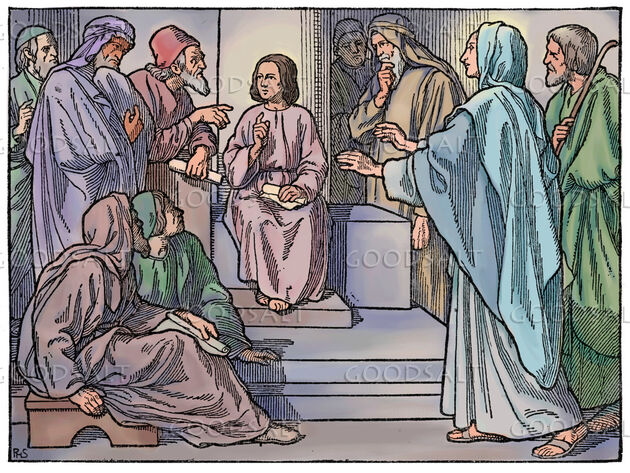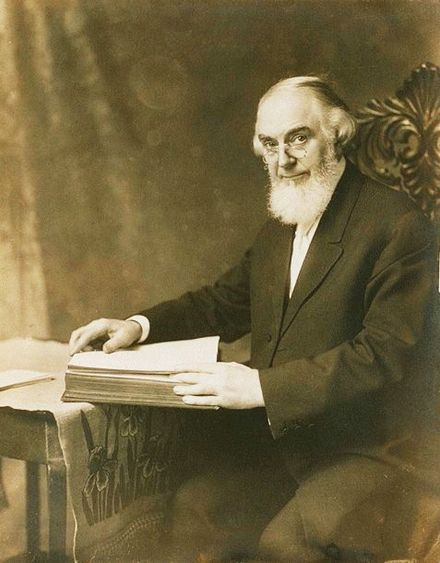Is God's name really Jehovah?
- C.Aamold

- Nov 3, 2024
- 9 min read
Updated: Aug 27

NOTE: I do not subscribe to any religion. I once believed in Masoretic Text translations until I dug deeper and came to a different conclusion during my search through Christian denominational teachings, their leaders, and the roots of how they started, while reading the Bible itself verse by verse a few times (many translations) or more to match up their beliefs to the spiritual book they claim to follow and believe in themselves. If you ask me what I believe, I would say what the scholarly census has agreed upon, even if the decision board doesn't agree with them because they're worried about the faith of humanity for what they were taught to believe despite it contradicting evidence. Anything I've studied, watched, read is added here to help you see how I got to this point to help others who are curious too.
(from their own literature, my commentary in blue)
Aid to Bible Understanding (book)
Pg 884
Taken for what they are worth, these traditional
views may reveal a superstitious tendency to avoid
using the divine name sometime before Jerusalem's
temple was destroyed in 70 C.E. Even then, it is
primarily the priests who are explicitly stated as using
a substitute name in place of the divine name, and
that only in the provinces. Additionally, the historical
value of the Mishnaic traditions is questionable, as
we have seen.
There is, therefore, no genuine basis for assigning
any time earlier than the first and second centuries
C.E. for the development of the superstitious view
calling for discontinuance of the use of the divine name.
original language 'Adhonay" (Lord) or 'Elo-him' (God)
rather than pronounce the divine name represented
A portion of a Hebrew manuscript by the Tetragram-
dated between the 9th and 11th maton. This is seen
centuries C.E. In the third line from the fact that
the Tetragrammaton is preceded when vowel point-
by, Lord,marked with the vowel points of "Elo-him" (God).
In the second nium C.E. the Jew-line it is marked with
the vowels ish copyists insert-of "'Adhonay'" ed the vowel
points for either •Adho-nay' or 'Elo-him' into the
Tetragrammaton, evidently to warn the reader to say
those words in placeof pronouncing the divine name.
If using the Greek Septuagint translation of the Hebrew
Scriptures in later copies, the reader, of course,
found the Tetragrammaton completely replaced by
Ky'ri-os and hoThe-os'. Translations into other languages,
such as the Latin Vulgate, followed the example of these later
copies of the Septuagint. The Catholic Douay trans-
lation (of 1609) in English, based on the Vulgate,
therefore does not contain the divine name, while
the King James Version (1611) uses LORD or GOD
(in all capitals) to represent the Tetragrammaton
in the Hebrew Scriptures in all but four cases.
The pronunciations "Jehovah" and "Yahweh"
By combining the vowel signs of 'Adho-nay" and
'Elo-him' with the four consonants of the Tetra-
grammaton the pronunciations Y'ho-wah' and Y'ho-
wih' were formed. The first of these provided the basis
for the Latinized form "Jehova(h)." The first re-
corded use of this form dates from the thirteenth
century C.E. Raymundus Martini, a Spanish monk of
the Dominican Order, used it in his book Pugeo
Fidei of the year 1270.
Hebrew scholars generally favor "Yahweh" as the
most likely pronunciation. They point out that the
abbreviated form of the name is Yah (Jah in the
Latinized form), as at Psalm 89:8 and in the expres-
sion Hal-lu-Yah' (meaning "Praise Jah, you people").
(Ps. 104:35; 150:1, 6) Also, the forms Y'hoh', Yoh, Yah
and Ya'hu found in the Hebrew spelling of the names
Jehoshaphat, Joshaphat, Shephatiah and others can
all be derived from Yahweh. Greek transliterations of
the name by early Christian writers point in a some-
what similar direction with spellings such as I-a-be'
and I-a-oue', which, as pronounced in Greek, resemble
Yahweh. Still, there is by no means unanimity among
scholars on the subject, some favoring yet other pro-
nunciations, such as Yahuwa, Yahuah or Yehuah.
Since certainty of pronunciation is not now at-
tainable, there seems to be no reason for abandoning
in English the well-known form "Jehovah" in favor
of some other suggested pronunciation. If such a
change were made, then, to be consistent, changes
should be made in the spelling and pronunciation of
a host of other names found in the Scriptures: Jere-
miah would be changed to Yir-meyah', Isaiah would
become Y'sha-'aya'hu, and Jesus would be either
Yehoh-shu'a' (as in Hebrew) or I -e- sous' (as in
Greek). The purpose of words is to transmit thoughts;
in English the name "Jehovah" identifies the true
God, transmitting this thought more satisfactorily
today than any of the suggested substitutes.
The name is literally a made up a name. Those other names were not made up (that they are trying to deflect and shift blame with), except for Jesus maybe, his name would be Yeshua/english:Joshua(and still, not really100% something we know). You can't keep a made-up name and say its ok to keep the "J" because all the other characters should have been Y then through their proper transliterations. The point is, the vowels that made a name up. Not even the first Letter. The name is wrong, the name will always be wrong.
THE DIVINE NAME
The last four paragraphs of your article are grouped under the heading “Jehovah Not Correct as God’s Name”. Here you open by saying: “Something of the shallow scholarship in the sect in adopting the word Jehovah as part of its title is shown by the Catholic Biblical Encyclopedia’s treatment of this word: . . . .” And your closing paragraph says: “We fear that all the other scholarship of the Witnesses, including what they have done in their translation of the New Testament, is on the same basis as their use of the word Jehovah.”
Thank you for this opportunity to present some facts to you and to the public. We do not say that “Jehovah” is the correct pronunciation of God’s name. For that matter, neither is “Jesus” the correct pronunciation of Christ’s name. But according to the Aramaic language which Christ and his apostles spoke, his name was pronounced “Yeshuʹa” (the a representing a gutteral ending). But “Jesus” is only our colloquial way of pronouncing his name, and we do not find fault with you for using it instead of Yeshuʹa. However, if you call it shallow scholarship for the Committee to use the word Jehovah in the New World Translation, then you will have to admit that it is due to the shallow scholarship of the Roman Catholic clergy of the thirteenth century, for in that century the word historically appears among them.
Your quotation from the Catholic Biblical Encyclopedia says Jehovah was the incorrect pronunciation given to the Hebrew tetragrammaton JHVH in the 14th century by Porchetus de Salvaticis (1303). But let us say: The origin of the word Jehovah used to be attributed to Petrus Galatinus, a Franciscan friar, the confessor of Pope Leo X, in his De Arcanis Catholicae Veritatis, published in 1518. But the latest scholarship has proved he was not the one to introduce the pronunciation Jehovah, and neither was your aforementioned Porchetus de Salvaticis. As shown by Joseph Voisin, the learned editor of the Pugio Fidei (The Poniard of Faith) by Raymundus Martini, Jehovah had been used long before Galatinus. Even a generation before Porchetus de Salvaticis wrote his Victoria contra Judaeos (1303), the Spanish Dominican friar Raymundus Martini wrote his Pugio, about 1278, and used the name Jehovah. In fact, Porchetus took the contents of his Victoria largely from Martini’s Pugio. And Scaliger proves that Galatinus took his De Arcanis bodily from Martini’s Pugio. Galatinus did not introduce the pronunciation Jehovah, but merely defended it against those who pronounced the Hebrew tetragrammaton Jova.
In 1557 Jehovah became established in John Forster’s New Hebrew Dictionary, and Marcus Marinus admitted Jehova in his Lexicon Arca Noae of 1593. Sebastian Muenster uses the name Jehova in his text of his Latin translation of the Hebrew Scriptures (1534), and in his notes on Exodus 3:15 and Ex 6:3 he uses the name as though it were well known. Also in 1557, in bringing out Pagninus’ Latin version of the Hebrew Scriptures, Robert Stephanus used Jehova uniformly for the Hebrew tetragrammaton. In a note on Psalm 2:1 he remarked that substituting Adonai for it was to be rejected as a Jewish superstition.
Cardinal Thomas de Vio Cajetanus in his Commentary on the Pentateuch, of 1531, regularly used Jehova. In his translation of Genesis 2:4 he has “Jehova Elohim”; and in his note on Exodus 6:3 he says: “Jehovah the God of your fathers appeared to me (Iehova Elohe patrum vestrorum visus est mihi).” To be consistent, you should call that “shallow scholarship” on the part of your cardinal, what?
But that such “shallow scholarship” is not limited to Roman Catholic clergy of the 13th to the 16th centuries, please be apprised that in an edition of the French Catholic Bible by Abbé A. Crampon of 1905 he used Jehovah in his text; this has since been amended to read “Yahweh” according to our copy of the 1939 edition. But note also the following.
You are also doubtless acquainted with the magazine The Grail, published in St. Meinrad, Indiana. Well, in the February, 1949, issue of this magazine appeared the article “Jona, God’s Problem Prophet” by Philip Dan Stack. In it we read: “Now the word of Jehovah came unto Jona the son of Amittay* [Footnote*: ‘All quotations from Sacred Scripture in this essay are from The Westminster Version of the Sacred Scripture, edited by The Rev. Cuthbert Lattey, S.J.; this accounts for the unusual spelling of certain proper names.’], saying, ‘Arise, go to Nineveh, that great city, and denounce it; for their wickedness is come up before me.’ (Jona 1:1-2) . . . A fine chance he, an insignificant prophet from Gath-hefer, would stand in forcing penance upon the fabulous Ninevites, who did not even know his own God’s name.” From page 54 to page 58 the name Jehovah is used 30 times, twice being spelled Jahve, and the version from which it is quoting is, mind you, the Westminster Version by a Jesuit Reverend! Was that not quite “shallow scholarship” to set before Catholic readers? Does it not make you blush to be confronted with such “shallow scholarship” on the part of Roman Catholic publications and authors in this twentieth century?
The pronunciation Jahweh, usually credited to John L. Ewald of the 18th century, goes back farther, to the 16th century. Ten years before Ewald was born (1747), Jahveh was found in Eichhorn’s Simonis, the Lexicon in most general use in Germany. F. H. Gesenius adopted the pronunciation Jahveh when Ewald was still defending Jehovah.
Why, then, does the New World Translation use the name Jehovah 237 times in its main text? Is it due to “shallow scholarship”, as you insinuate? No. In the Foreword, from page 10 to page 25, the Translation Committee explains its basis for using this name so many times. In addition to the 19 Hebrew versions, it cites versions of the “New Testament” in 38 languages besides English and Hebrew where the translators use a vernacular form of the Hebrew tetragrammaton. But in its 2nd last paragraph the Translation Committee says: “While inclining to view the pronunciation ‘Yah·wehʹ’ as the more correct way, we have retained the form ‘Jehovah’ because of people’s familiarity with it since the 14th century. Moreover, it preserves, equally with other forms, the four letters of the tetragrammaton JHVH.” And in its footnotea of page 36, on Matthew 1:20 where “Jehovah’s angel” appears, it says: “Jehovah’s, or, Yahweh’s.”
At the Yankee Stadium, when giving his speech introducing the New World Translation, the Society’s president said: “But, while recognizing the merits of the pronunciation ‘Yah·wehʹ’, the translation committee has used the form ‘Jehovah’ because of its familiarity and because it preserves the four original letters of the Hebrew name. In God’s own time when He reveals the correct pronunciation of his holy name, we will gladly make the accurate correction.”—See The Watchtower, September 15, 1950, page 317 ¶ 14.
The true scholarship behind the New World Translation will make itself known, not by the disclosure of the names of the translating committee, but by the faithfulness of the translation to the Greek text and by the reliable help it gives toward understanding God’s written revelation to men. We are not troubled, therefore, by your thrust: “Albeit the identity of the translators is being withheld at their own request—they are not likely to make much impression on either Catholic or Protestant scholars. It is no wonder that the translators wish to remain unknown.” (¶ 7)
Not praise from the scholarship of this fading world, but the true service of God and the education of the people in his Word, is what we are after. The honesty, courage and firm foundations of this translation will commend it to honest seeking hearts. Already the fact that the universally known Watch Tower Bible & Tract Society publishes this New World Translation has been more of a recommendation to lovers of God’s Word than the mere scholarship of Christendom.
So, they admit it a long time ago, yet today they act like its "new" to know Yeshua's actual name, what do they think they called him before J was used in the alphabet after 17th century? This isn't about the first letter.
So, they know how its more accurately pronounced, yet they won't change to it as they say they would here.
These people writing back, are cocky and have no humility.
They make their people FIGHT for this name and die on the semantics hill and make them look like fools for doing so, and then say they don't here, making their rank-and-file look even more idiotic.








Comments